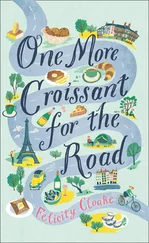Shannon Waverly - Three For The Road
Здесь есть возможность читать онлайн «Shannon Waverly - Three For The Road» — ознакомительный отрывок электронной книги совершенно бесплатно, а после прочтения отрывка купить полную версию. В некоторых случаях можно слушать аудио, скачать через торрент в формате fb2 и присутствует краткое содержание. Жанр: foreign_contemporary, Современные любовные романы, на русском языке. Описание произведения, (предисловие) а так же отзывы посетителей доступны на портале библиотеки ЛибКат.
- Название:Three For The Road
- Автор:
- Жанр:
- Год:неизвестен
- ISBN:нет данных
- Рейтинг книги:5 / 5. Голосов: 1
-
Избранное:Добавить в избранное
- Отзывы:
-
Ваша оценка:
- 100
- 1
- 2
- 3
- 4
- 5
Three For The Road: краткое содержание, описание и аннотация
Предлагаем к чтению аннотацию, описание, краткое содержание или предисловие (зависит от того, что написал сам автор книги «Three For The Road»). Если вы не нашли необходимую информацию о книге — напишите в комментариях, мы постараемся отыскать её.
Three For The Road — читать онлайн ознакомительный отрывок
Ниже представлен текст книги, разбитый по страницам. Система сохранения места последней прочитанной страницы, позволяет с удобством читать онлайн бесплатно книгу «Three For The Road», без необходимости каждый раз заново искать на чём Вы остановились. Поставьте закладку, и сможете в любой момент перейти на страницу, на которой закончили чтение.
Интервал:
Закладка:
The cat gave her a look that said he’d had enough bothersome conversation. He settled his chin on his paws, closed his yellow eyes and went to sleep.
Mary Elizabeth shrugged and turned on the radio, trying to find a classical station. When she had, she settled back.
But a few minutes later her mind had wandered again, away from the music to the countless school concerts Charles had sat through when she was a girl. He’d attended her plays and art exhibits, as well. But he’d usually grumbled beforehand, looked impatient during and been irritable after. At times she’d thought she was merely being overly sensitive, but now she knew better. Now a lot of Charles’s behavior made sense. So did his words. You’ve always been a burden, Mary Elizabeth. A burden. More than she’d ever suspected, apparently.
It must have been terribly difficult raising a child who was the taunting proof of his wife’s infidelity, a child he clearly didn’t want and had hoped Eliza would give up for adoption. And how maddening it must have been when that child, given every advantage, had continually failed to live up to the Drummond name.
Or maybe she had, she thought, but in his pain and resentment Charles had simply refused to acknowledge it.
Mary Elizabeth’s fingers tightened around the wheel. She wished she’d seen things in that light when she was younger. Instead, she’d spent her youth trying to win his approval and love, trying, always trying, but growing increasingly certain that in some mysterious way she was inferior and deserved to be treated differently from her brother and sister.
Damn! It shouldn’t have been that way. Her mother should have told her about her illegitimacy instead of keeping it a secret. It would have explained so much. Besides, it was her very identity her mother had withheld. And what if there was some unpleasant surprise lurking in her gene pool such as heart disease or diabetes? It was only right a person be told such a thing, or at least be given the opportunity to find out. The likelihood of that happening now was slim. Mrs. Pidgin had told her that after her biological father left the area, her mother had never heard from him again. No one knew where he was or if he was even still alive.
Mary Elizabeth came to with a start, realizing she’d done it again. She’d fallen into thinking about Charles and her illegitimacy when her mind ought to be on the road. With a determined effort she put them from her thoughts, reached for the radio and turned up the volume.
She stopped at a roadside rest area south of Boston shortly after noon to feed Monet, who thought he was human and insisted on three meals a day. Although anxiety had destroyed Mary Elizabeth’s appetite, she knew that for the baby’s sake she ought to eat, as well.
While she was putting together a lobster salad sandwich, she realized her stomach was knotted with a curious new tension. Her hands trembled with a nervousness she couldn’t quite define.
She was opening a cupboard to look for her copper tea kettle when the thought abruptly hit her: survival. That’s what this nervousness was about—preparing her first solitary meal, in the first home that could truly be called her own. It didn’t matter that she’d prepared innumerable meals before. This one cut through time and all common sense to feelings that were obscure and primitive. The need to survive. The fear that she wouldn’t, just as Charles had predicted.
Conscious of her every move, she found the kettle, set it on the propane stove and turned the knob. Ridiculously, her heart leapt when a flame appeared.
She considered going out to a picnic table with her food, but an eighteen-wheeler was parked nearby, and while the driver was probably just having his lunch, too, she felt it was wiser to stay inside.
She sat instead at the small kitchen table and cranked open the window to catch the fresh September breeze. Gazing outside at her unfamiliar surroundings, her stomach suddenly clenched again. She was alone now, truly disconnected from everything she knew, and she felt alone, felt disconnected.
But there was simply no way she could have stayed in Deerfield. Feeling alone and disconnected wasn’t nearly as bad as having to deal with Charles. Or with Roger, she thought. In a town as small as Deerfield, Roger would have found out about her pregnancy sooner or later.
Mary Elizabeth picked up her sandwich and took a small, tasteless bite. Charles was right; Roger was a decent person, and although he and Mary Elizabeth didn’t love each other, he’d want to marry her. He’d think it was the right thing to do.
It wasn’t. She’d never been more certain about anything in her life. It wasn’t her own happiness she was considering, although she’d always assumed she’d marry a man she was in love with. It was the child’s welfare that concerned her. Roger would feel trapped in a situation he hadn’t planned and didn’t need or want.
Of course she wouldn’t have to marry him, despite her father’s considerable influence on both her and Roger. But even single, Roger was sure to resent the child. Maybe not at first. At first he might ask for visitation rights, maybe even insist on paying child support, but eventually he would feel he’d been dealt an unfair hand, especially when he met a woman he wanted to marry. He’d resent having to explain this embarrassment from the past, this bastard. He’d resent having to justify the drain on his time and his wallet. The child would become an issue between them. His wife might even be jealous and ask him to stop seeing the child altogether.
No, Mary Elizabeth didn’t want any baby she brought into the world to grow up like that, resented and unwanted by its father—the way she’d been raised.
She regretted not being able to tell Roger she was pregnant. Fathers had their rights, and what she was doing to him was morally wrong and probably legally wrong, as well. But whatever guilt she felt was dwarfed by her conviction she was doing the right thing for the baby. And in the end, would it really matter whether Roger knew or not? She planned to give the baby up for adoption, anyway.
Taking a sip of tea, she let her gaze wander the motor home, crammed full of her possessions. She’d brought along most of the necessities to start a new life, but she’d also brought some frills. The Steuben goblets she’d inherited from her grandmother, her Crabtree & Evelyn clothing sachets, nearly twenty years of needlework, even her Salem rocker. She knew personal, homey touches had little to do with survival, but she needed them, anyway. Her soul needed them.
Mary Elizabeth smiled softly, her sense of well-being returning. She might be alone now, detached from home and everyone she knew, but ultimately she’d be okay. She had this RV to comfort her and shelter her from all the wide-open unknowns beyond.
And she had a tiny life growing inside her, she thought, placing her hand on her stomach. As always, that realization intensified her resolve. She would reach Florida, she would make a new life for herself. And she would provide a happy future for the baby. There would be no more talk of abortion, no more pressure to marry a man she didn’t love, no more fear that that man would begrudge and mistreat his own child. The legacy of resentment stopped here.
She finished her lunch, washed her dishes and, with fresh determination and optimism, got back on the road.
Mary Elizabeth’s spirits remained buoyed through most of the afternoon, down the Massachusetts interstate, into Rhode Island and on through Connecticut. She played the radio, listened to a book on tape, and when she got tired of that, simply drifted along with her thoughts.
She pulled into another rest area just before New Rochelle. Traffic was bumper-to-bumper on the opposite side of the highway, commuters leaving New York for their homes in the suburbs. And while this side of the highway was relatively free-flowing, she knew she’d hit similarly clogged arteries once she reached the city and the lanes outbound south.
Читать дальшеИнтервал:
Закладка:
Похожие книги на «Three For The Road»
Представляем Вашему вниманию похожие книги на «Three For The Road» списком для выбора. Мы отобрали схожую по названию и смыслу литературу в надежде предоставить читателям больше вариантов отыскать новые, интересные, ещё непрочитанные произведения.
Обсуждение, отзывы о книге «Three For The Road» и просто собственные мнения читателей. Оставьте ваши комментарии, напишите, что Вы думаете о произведении, его смысле или главных героях. Укажите что конкретно понравилось, а что нет, и почему Вы так считаете.












